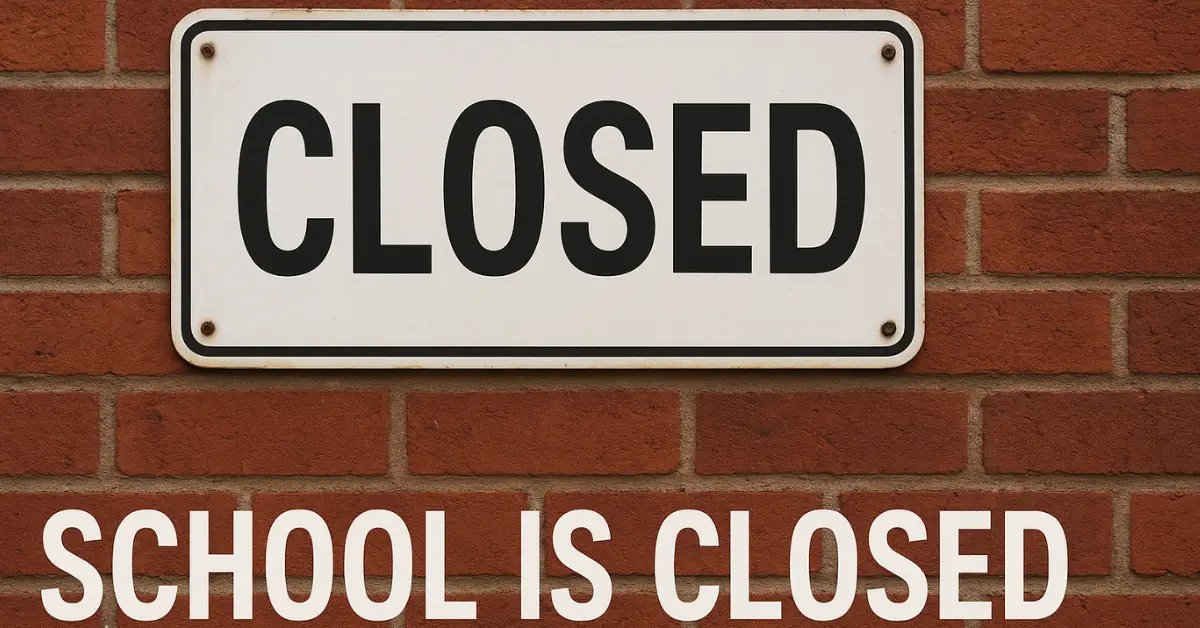PEF Directs Closure of Schools on Smaller Plots
The PEF directs Closure of Schools on Smaller Plots through a new policy that affects schools operating on plots smaller than ten marla. According to the recent directive, schools that do not meet the size requirement are required to either relocate or modify their existing infrastructure to comply with the new regulations. With a deadline set for November 10, 2025, this policy is expected to significantly impact smaller educational institutions in the province. In this article, we’ll explore the details of this new policy, its impact on school owners, and the steps schools must take to avoid closure.
Details of the New Policy
The Punjab Education Foundation has introduced a new requirement aimed at ensuring schools operate on plots that can accommodate sufficient space for the growing educational needs of students. Schools currently operating on plots smaller than ten marla are being instructed to either:
- Relocate to a building with at least ten marla of land.
- Expand their current premises to meet the minimum land size requirement.
This policy applies to both private and public schools that are registered with the Punjab Education Foundation. The primary goal behind this move is to improve the quality of education by ensuring schools have adequate facilities and space for classrooms, extracurricular activities, and proper student-teacher ratios.
School owners have been given a two-month grace period, until November 10, 2025, to comply with the new rules. During this time, they are expected to either start the expansion process or find new premises that meet the minimum land size requirement.
FIA Corruption Crackdown: Officers Dismissed & New Reforms Rolled Out
Impact on School Owners and Educational Institutions
The new policy will undoubtedly affect the operations of smaller schools. Particularly those located in densely populated urban areas or rural regions where land availability is limited. Many school owners are concerned about the feasibility of finding or developing new plots. That complies with the ten marla requirement, as land prices in some areas can be prohibitively high.
For some schools, especially those operating on tight budgets, expanding the current structure or relocating may not be financially viable. In such cases, these schools may face a hard decision of either shutting down or seeking other ways to meet the regulations. Such as merging with other educational institutions.
What Happens If Schools Fail to Comply?
PEF has made it clear that strict actions will be taken against schools that fail to comply with the new regulations. Schools that do not meet the size requirements by the deadline will face:
- Legal action: Schools could be legally prosecuted for non-compliance.
- Immediate closure: Institutions may be forced to shut down if they fail to meet the necessary standards within the grace period.
To prevent such consequences, school owners must notify the Punjab Education Foundation about their plans to either expand or relocate. Once the changes are made, PEF will inspect to ensure that the school meets all requirements before issuing formal approval.
Xinjiang Agricultural University Opens Fully Funded Veterinary Research Seats for Pakistan
Steps for School Owners to Comply
School owners have several steps to follow to comply with the PEF’s new policy:
- Assess the Current Situation: School owners should first assess whether expanding their existing premises is feasible. This involves determining if there is enough space on the current plot or whether additional land can be acquired nearby.
- Find a New Location (If Necessary): If expanding the current building isn’t possible, owners will need to search for a new plot of land that meets the ten marla requirement. This might involve working with local real estate agents or municipal authorities to identify suitable properties.
- Submit Plans to PEF: Once the necessary changes have been made, whether it’s an expansion of the current building or relocation to a new plot. School owners must submit the details to the Punjab Education Foundation for approval. This includes providing proof of land ownership or rental agreements, building blueprints, and any other required documentation.
- Prepare for Inspection: After submission, PEF will inspect the new or modified school premises to ensure that all regulations are met. The inspection will check whether the land size, infrastructure, and safety measures are up to the required standards.
- Wait for Formal Permission: Once the inspection is complete and the school meets all criteria. PEF will issue formal permission for the school to continue operating.
Potential Legal and Financial Implications
For school owners who fail to meet the requirements, the legal and financial implications can be severe. Aside from the potential legal action that could be taken by the Punjab Education Foundation, school owners may face:
- Loss of reputation: Schools that fail to comply may lose the trust of parents and students. Making it difficult for them to operate in the future.
- Financial burden: Expanding or relocating a school can be expensive. The costs involved may include buying land, construction fees, and other operational expenses. For smaller schools with limited budgets, this may be a major financial challenge.
- Closure of business: In the worst case, schools that cannot comply with the deadline will be forced to shut down. Impacting not only the owners but also the students and teachers who depend on the institution.
BISP Ehsaas 8171 Online Check 2025: Complete Guide to Verify Eligibility & Apply for Registration

